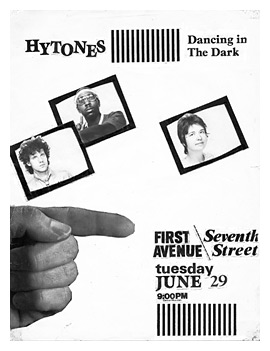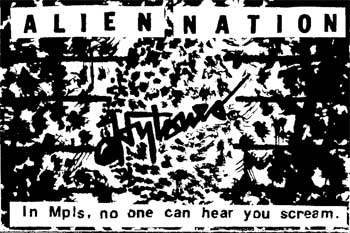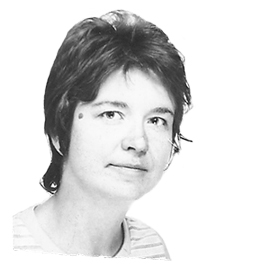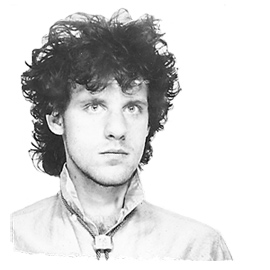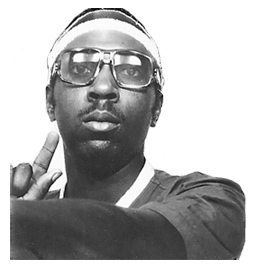The further back in time I go, the more interesting it gets. By the mid-’80s, it had become so di rigeur to succumb to industry and dwell on the social reactionary politics of art, one often forgot that it could actually be fun to be in a band.
The original line-up for this band was called Luke Warm and the Late Girls, and was spearheaded by Phil Schuster (aka Zel From Hell), one of the former guitarists from The Sacred Version. I’m almost certain that the first version of The Hytones was the same line-up, with the addition of pre J. Free-era Jeff Larkin sharing songwriting and vocal duties with the groups’ main vocalist Laura LeCocq, and also filling in on bass or guitar on a few songs. I had been the sound engineer for The Late Girls, and did a bit of footwork to book shows for the group as well. At one point, this meant patching up a misunderstanding with the booking agent for the Seventh Street Entry, regarding an incident which had resulted in The Sacred Version being banned from First Avenue/7th St. just a few years earlier. The Late Girls even borrowed me as an extra, for a music video shot on the roof of their practice space for a local TV show. (Sadly, the “creative editing” the show’s programmers applied to the finished result suggested they weren’t as receptive to “underground” music as they had led us to believe). For reasons I can’t figure out, I no longer seem to have any of the tapes I made of The Late Girls – which is a shame, because they really had a unique groove, and were never given a fair shake in the local club scene.
Getting a band booked in Minneapolis in those days was tougher than one might think, if you were weren’t on the list of officially designated hipsters (which frankly, hasn’t changed much in the past few decades). One well-known sound man associated with First Avenue was successful in preventing The Late Girls from playing in that venue, based on his personal assessment that “they sucked.” [Whether this professional commentary was influenced by his own love affair with the presumably original sound of ’50s & ’60s retro-garage rock, or the fact that his own band had a practice space in the same building as The Late Girls, has never been verified, but it casts an interesting perspective on what it takes to be a successful artist in Minneapolis, at any rate.] Fortunately, the demo I had produced convinced the booking agent that the group had merit, and they were given permission to enter the hallowed walls of First Avenue, which at the time, was practically the only venue in town, if you weren’t in a covers band.
Zel left the band after a while, and I was invited to join as the second vocalist/guitarist by the group’s multi-faceted keyboardist, Vicki Jazz. Vicki had a unique style of playing that allowed her to double as the group’s bassist, on a second keyboard. I used to just watch in awe at times, as she would play two completely separate melody lines – at the same time, on two different keyboards. Most of the time, she didn’t even have to look at what she was doing – she would play with her eyes closed, and you could tell she was off in the music somewhere.
Initially, Vicki tried to encourage me to sing some standard rock + roll numbers that I could trade off with Laura, like “Burning Love”. I never was a big fan of Elvis Presley, and every time I tried to sing that song, it came out sounding more like The Cramps. Vicki also was the first person who ever got me to really listen to Captain Beefheart. Where others had failed before, trying to sell me on the eccentric character traits of Don Van Vliet, Vicki just played the records and showed me the ins and outs of the music itself. Because of Vicki Jazz, I own every single Captain Beefheart album ever made, as well as every live recording I’ve been able to get my hands on – and that’s some legacy, let me tell you.
The Hytones‘ first line-up had more in common with popular rock of the day than with the avant-garde, but the inspiration for both creative impulses were present. Ironically, this same mix of creative ideas and roles eventually led to a complete fallout of the band. Yours truly was going through a divorce at the time, and ended up staying at Vicki’s house, which also happened to be the practice space for The Hytones. Vicki and I continued working out musical ideas together, and decided to forge ahead with the band name.
A friend of mine, Micki Ellis played acoustic guitar with us for about a month or so, adding an extra dimension to our sound. Micki had a keen sense of rhythm, accenting my jagged approach to guitar, and underscoring Vicki’s keyboard-driven bass lines. Last but not least, Kimuel Hailey answered the call for a drummer, and the minute he started playing, it was clear the auditions were over. This solidified the mix of creative inspiration the band would continue to work with for the rest of its’ brief existence. We had some good times, playing this unidentifiable weird brand of pop music, and it’s hard to believe that all of this activity took place in under a year’s time! We also played a handful of good shows along the way with a bunch of other talented Mpls bands, including Sometimes Y, The Hightops (okay, some booking agents are just too clever for their own good…), Fine Art, Things That Fall Down, and even The Suburbs!

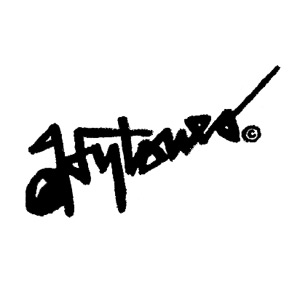
![1982 1st Ave calendar featuring Hytones [464px]](https://sonicarchives.com/wp-content/uploads/hytones.19820319-464px.jpg)
